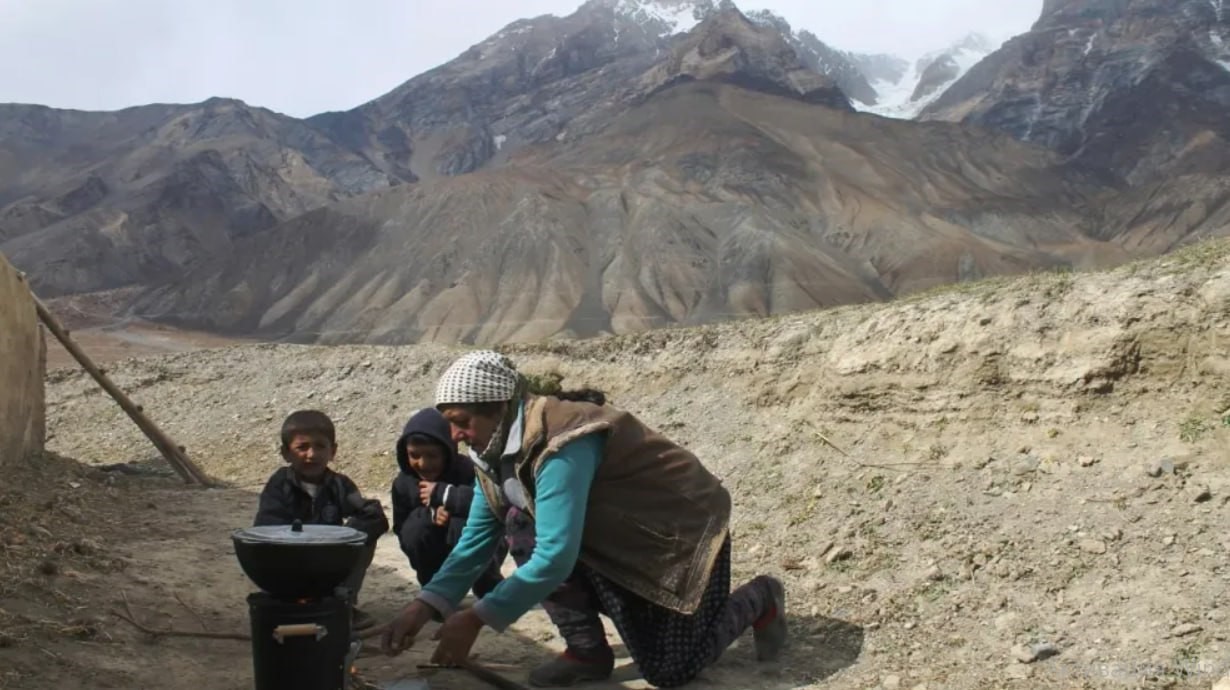Tajikistan's survival strategy
At Cop29, President Rakhmon presented his plan for the country's complete transition to a green economy by 2037. A challenge for a reality where fields facing long periods of drought, reduced harvests even in dryland farming, and many livestock losses are putting a strain not only on workers in the agricultural sector, but on the entire population.
Dushanbe (AsiaNews) - The Cop29 in Baku that closed a few days ago was also attended by the President of Tajikistan, Emomali Rakhmon, who presented the plan for the country's complete transition to a green economy by 2037, the National Development Strategy that sees the ecological dimension as an ‘indispensable task for survival’.
Since Tajikistan's independence at the end of the Soviet period, the country has been facing serious economic problems, which threaten its political and social stability, and its security in general. The Strategy-2030, approved by the Dushanbe parliament in 2016, describes the main problems to be addressed, which await effective responses, and one of the main points concerns the measures to be taken to deal with climate change, Tajikistan being highly exposed to devastating consequences.
Of the 180 countries listed by the University of Notre Dame with respect to climate adaptation, Tajikistan ranks 111th, with further negative notes for various sectors. The economic damage due to extreme climate phenomena in the country amounts to USD 400 million, or 4.8 per cent of the entire national GDP. A number of strategic commitments are outlined in the Strategy: security of food production, breaking the communications deadlock and ecological security. In 2018, Rakhmon also added the need for true industrialisation of the country.
However, all these objectives are linked to climate issues, which greatly affect the development of Tajik society, starting with the problems of agricultural production. Long periods of drought, reduced harvests in dryland farming, and many losses in livestock farming are affecting the fields, putting a strain not only on workers in the agricultural sector, but on the entire population. Many farmers abandon their land in search of more fertile areas, and are forced to use huge amounts of water to achieve some results even in the new territories.
New production methods and reformulation of the quantities of produce are sought in order to optimise efforts, aiming at longer ripening times, and the ever-diminishing water resources have to be properly distributed. All this affects at least 2 million people out of a population of over 10 million, of whom about 800,000 are well below the poverty line.
The melting of glaciers and the retreat of their extension, which constitutes the natural reserve for irrigation in Tajikistan, continues. The current rate of melting is calculated at 0.5-0.8% per year, which could reduce glaciers by 15-20% by the end of the century, and smaller glaciers could disappear altogether within 30-40 years. Energy production is also very sensitive to changes in the climate, as it is very closely linked to water systems that are in danger of running out of water.
Increasingly serious problems also arise for the transport and infrastructure sector, with flooding of roads, bridges and railways due to violent and sudden rainfall, salt spray on asphalt and flooding due to melting, starting with communications in mountainous areas. Many roads are temporarily blocked, and some seem impossible to restore.
The solutions are certainly not easy and immediate, and point to the need to switch as quickly as possible to alternative sources of energy, redesigning the transport network and supporting workers in the sectors most affected by these phenomena. What is needed is more research and information, in cooperation with international institutions, the involvement of the entire population, and the ability to attract strong investments, both domestic and from abroad, breaking out of the Central Asian country's traditional isolation.
24/10/2019 17:56







.png)










